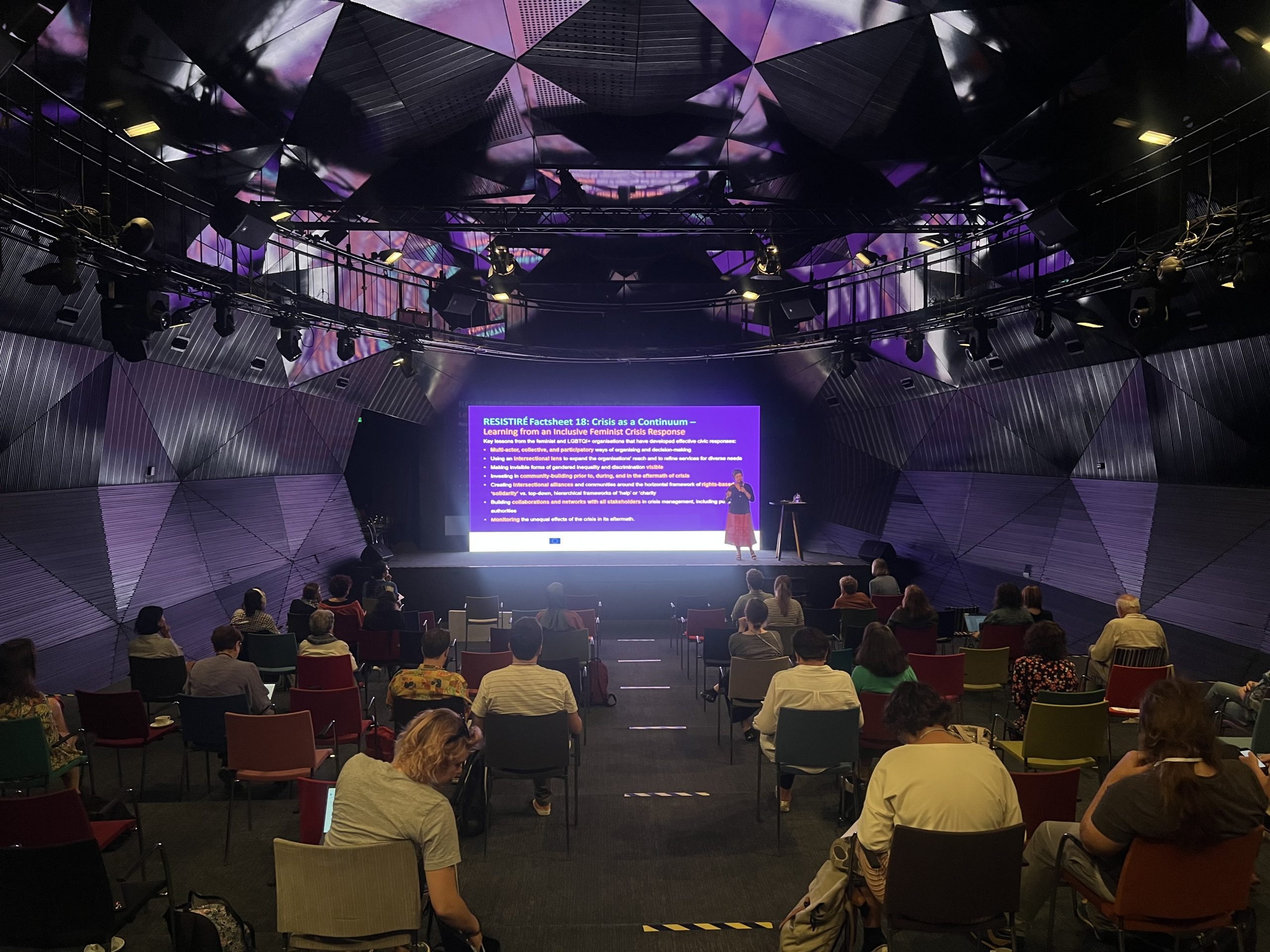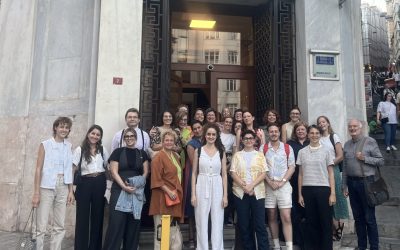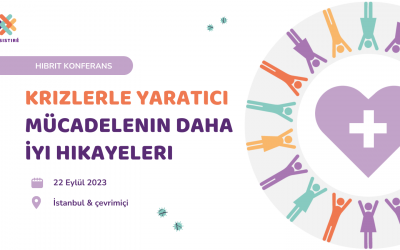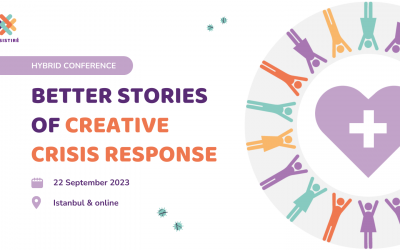RESISTIRÉ has developed policy recommendations through co-creative workshops with researchers and activists specializing in inequalities during crises. These recommendations were based on three cycles of RESISTIRÉ research and are supported by project factsheets aiming to provide a conceptual framework for approaching future crises.
During the initial part of RESISTIRÉ’s conference, “Better Stories of Creative Crisis Response” held on September 22, experts in feminism and LGBTQ rights presented and discussed one of the factsheets titled “Crisis as a Continuum: Learning from an Inclusive Feminist Crisis Response.”
Navigating Crises for Inclusive Solutions
Ayşe Gül Altınay initiated the session by presenting the factsheet, emphasizing the need for an inclusive and effective approach to future crises, requiring a shift in current practices. To prevent and better manage future emergencies, it’s crucial to adopt a holistic approach to crises as a continuum, addressing the complex and interconnected challenges before, during, and after a crisis.
Following this, an enlightening roundtable took place, featuring diverse participants, including Gülşah Şeydaoğlu from the Women’s Coalition, Nebahat Akkoç from KAMER Women’s Center, Sevgi Uçan Çubukçu from EŞİK, Women for Equality Platform, Havva Kafes from the May 17 Association, and Aysel Fidan from BAKAD – Cultural Studies for Peace Association. These participants evaluated the validity of the factsheets’ content, drawing insights from experiences during the COVID-19 pandemic and the recent earthquake crises.
The participants acknowledged that feminist initiatives and Civil Society Organizations (CSOs) have demonstrated exceptional crisis management abilities during these challenging times. They showcased adaptability and an understanding of change. For instance, Gülşah Şeydaoğlu highlighted the role of CSOs in creating a WhatsApp group within the local community during the earthquake, facilitating the sharing of crucial information and addressing various needs. She stressed that “when things calmed down, it became evident to people the vital role of CSOs in crisis response, often faster than government authorities.”
The panels proceeded to share lessons learned during emergencies, emphasizing their collective experiences, wisdom, and inclusive feminist approaches to crisis preparation, management, response, and recovery. Several key lessons emerged:
- Tailor measures for the specific needs of each locality and province. For example, Havva Kafes emphasized the importance of using the local language in providing psychological support.
- Recognize that crises disproportionately affect vulnerable groups, such as elderly LGBT individuals and those with HIV. Strengthen support at both the national and subnational levels to prevent further deterioration of their circumstances and enhance inclusiveness through well-targeted services.
- Allocate substantial funds and human resources for managing these crises effectively.
- Develop curricula that educate students on how to respond in emergency situations, ensuring preparedness.
In conclusion, it is imperative to include these lessons into policy design and treating crises as a continuum. A well-integrated mechanism for inclusive crisis management should be developed to avert catastrophic consequences and enhance preparedness for future crises.




